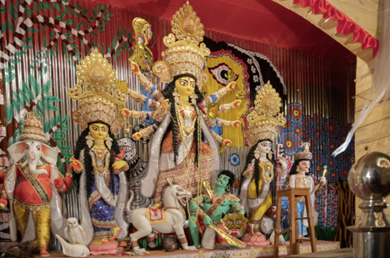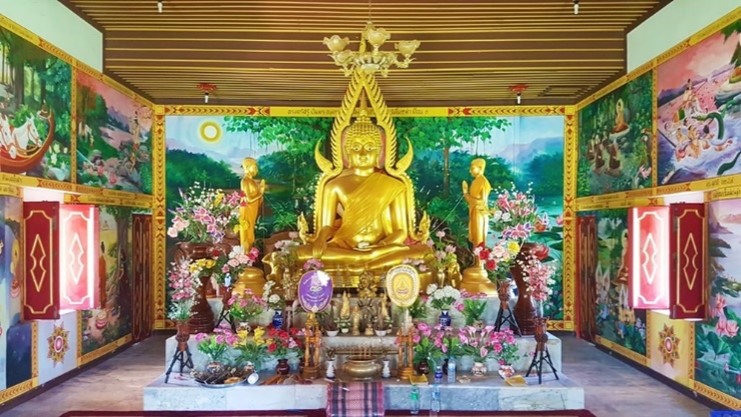And so, it starts, the annual British preoccupation about one day of the year. The conversations start early, from around October to December 25th. Currently, we are in the midst of a pandemic and many of the media conversations are centred around what will happen on that one day.
For many people, that one day of the year is not anything particularly special, other than a frequent topic of conversation and some time off work. Some people are not religious at all, and have no time for a Christian religious celebration. For others, even some Christians such as Jehovah’s witnesses, Christmas is not a day they celebrate, so the national obsession with it must seem so odd.
For workplaces, if you join in with making everything about Christmas from October to December, have you considered that you might be making many of your employees roll their eyes as you prepare desk decorating competitions and mince pie deliveries? Worse than that, you could be making some employees or customers feel uncomfortable or unwelcome in the way you communicate your festive plans.
Different perspectives
Durga Puja – celebrating the triumph of good over evil, or when the goddess slayed the demon

For Bengali Hindu families, like mine, the biggest festival of the year is called Durga Puja (also called Dusserah) in early October. This festival is to celebrate the goddess Durga and her defeat of the demon King Mahishasura. It’s a celebration of good defeating evil, with festivities running for ten days. Alongside it runs Navratri, a nine-night festival celebrating the divine feminine. Around the UK there are celebrations held for Durga Puja, with people mostly fitting in the celebrations around their work.
As a child, I used to attend a big celebration held in Belsize Park in London. There is delicious food, lots of noise, new colourful clothes for everyone, and children running around joining in the fun. My memories of this include the annual difficult discussion between my family and my school about why I needed a day or two off to attend. Once finally allowed to go, there was the fun of the huge building, with big steps to run up, then entering the hall to see the figures of the Goddess Durga and hear the conch shell blown and smell the flowers. My visits up to the main hall were brief, as the festival was mostly about the fun and freedom of running around a huge building with my cousins and children of family friends in our sparkling new outfits. We were free to play as we wanted as my parents were safe in the knowledge that my uncle was always sitting downstairs near the doorway chatting to his friends, so he would see us if we tried to run out.
When it was over, I would go back to school and hardly mention it to anyone. By then, school discussions would be starting about Christmas celebrations and nativity plays where I might get to play a sheep, or if lucky, one of the wise men.
This is just one story; there are many different faiths celebrated in the UK and each have at least one main festival a year.
Eid (Edi-al-aha & Eid-al Fitr) – May and July (dates change)

Eid is the annual celebrations for Muslims to mark the end of Ramadan. During Ramadan people fast for a month from dawn to sunset. Then, during Eid, they celebrate with delicious food and family gatherings. There are two major Eids annually, one earlier in the year and one later in the year.
Diwali – October/November, dates change each year

The festival of light is about new beginnings and the triumph of good over evil. Diwali is from the Sanskrit word ‘deepavali’, meaning rows of lighted lamps. It’s a festival I always associate with a family friend, Deepa, I grew up with, whose birthday is usually around Diwali time. People celebrate with fireworks, lights, noise and delicious food. Even though it was not part of Bengali culture, we always celebrated it with Indian friends.
Rosh Hashanah– September

There are several important Jewish festivals throughout the year, and Rosh Hashanah is the Jewish New Year. This is when God’s creation of the world is celebrated, usually in September. It’s a time to reflect on the last year, ask for forgiveness for any wrongs and make priorities for the year ahead. This is the start of a 10-day festival leading up to Yom Kippur. Slices of apple are dipped in honey to symbolise a sweet new year ahead and honey cake is eaten.
Vesak – May/June

This is a celebration of Buddha’s birthday and of his enlightenment. Each Buddhist culture has different traditions, celebrated differently in each country. There is usually chanting, meditation, reflections and food shared.
Jehovah’s Witnesses & Quakers
Jehovah’s Witnesses do not celebrate religious functions or birthdays as they believe these are connected to pagan traditions. Instead, they celebrate passover.
Quakers do not officially celebrate Christian festivals such as Easter and Christmas, although many Quaker families do follow some of the traditions. They believe major religious events should be in mind throughout the year.
Atheists
For people who identify as atheists, they do not believe in the existence of God and spiritual beings. It is not a belief system or religion. Whilst this means there are no key festivals or celebrations to take part in, some atheists do like to mark pagan or seasonal events, such as winter and summer solstices or spring and autumn equinoxes.
Celebrating our differences
There are many other religions and beliefs I could have listed here, and a survey in 2017 found that more than half of the UK population has no religion. Another survey found that, by 2070, there are likely to be more Muslims than Christians in the UK. What all of this means is that to presume that Christmas is the most wonderful time of the year for everyone at your workplace is a way of disregarding diversity and difference. This doesn’t mean that Christmas can’t be celebrated at all. For some of your employees, it is the most important celebration of the year. And even those who don’t actively engage in Christmas as a religious festival might take the opportunity to spend time with family and friends and enjoy the food. What is important to think about is your communications, your celebrations and your language to your employees, customers and suppliers. It requires some thought and consideration in the words, tone and actions you use.
As someone who grew up in a Hindu family, we still celebrated Christmas! It was a way of fitting in for a family of immigrants, and everyone had the day off work so why not? In fact, we celebrated with great gusto, with all my aunts, uncles and cousins gathering for the day at one house, wearing paper hats and wondering how English people cook their turkeys and warm their Christmas puddings. It was a day of presents, crackers, Christmas Top of the Pops, having to be quiet for our parents to hear the Queen’s speech and making curries from the leftovers.
So as we approach what will be a difficult time of year for many people this year, and for others not something particularly to focus on and discuss endlessly, it’s time to be more considerate in how we frame Christmas. There are people who will be struggling financially, who might be missing a relative or friend this year, and there are those who will be working on the day. We know it’s Christmas, we can’t escape that, but for many people, they don’t want it rammed down their throats from October to December. It’s one day amongst many other different days. And maybe you might like to find out what days are important to the people in your organisation, and give those celebrations some respect too.
